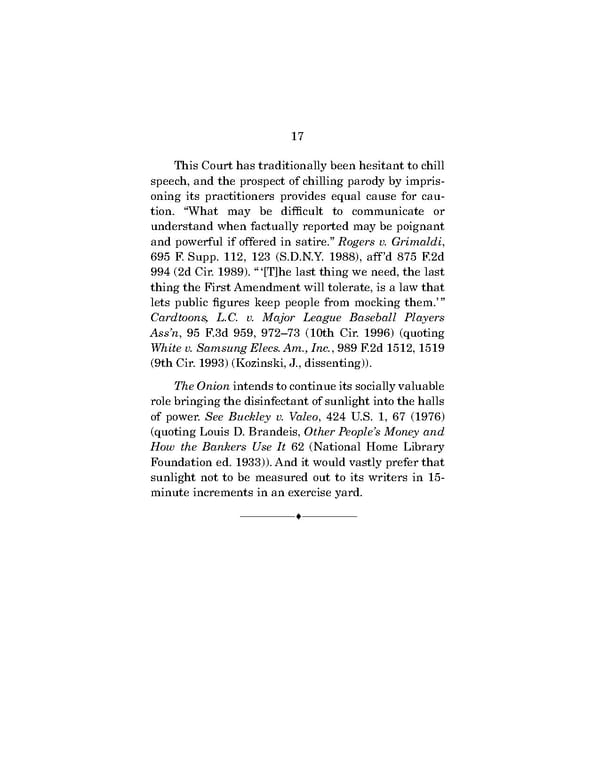17 This Court has traditionally been hesitant to chill speech, and the prospect of chilling parody by impris- oning its practitioners provides equal cause for cau- tion. “What may be difficult to communicate or understand when factually reported may be poignant and powerful if offered in satire.” Rogers v. Grimaldi, 695 F. Supp. 112, 123 (S.D.N.Y. 1988), aff’d 875 F.2d 994 (2d Cir. 1989). “‘[T]he last thing we need, the last thing the First Amendment will tolerate, is a law that lets public figures keep people from mocking them.’” Cardtoons, L.C. v. Major League Baseball Players Ass’n, 95 F.3d 959, 972–73 (10th Cir. 1996) (quoting White v. Samsung Elecs. Am., Inc., 989 F.2d 1512, 1519 (9th Cir. 1993) (Kozinski, J., dissenting)). The Onion intends to continue its socially valuable role bringing the disinfectant of sunlight into the halls of power. See Buckley v. Valeo, 424 U.S. 1, 67 (1976) (quoting Louis D. Brandeis, Other People’s Money and How the Bankers Use It 62 (National Home Library Foundation ed. 1933)). And it would vastly prefer that sunlight not to be measured out to its writers in 15- minute increments in an exercise yard. --------------------------------- ♦ ---------------------------------
 Onion - Legal Case for Parody Page 21 Page 23
Onion - Legal Case for Parody Page 21 Page 23